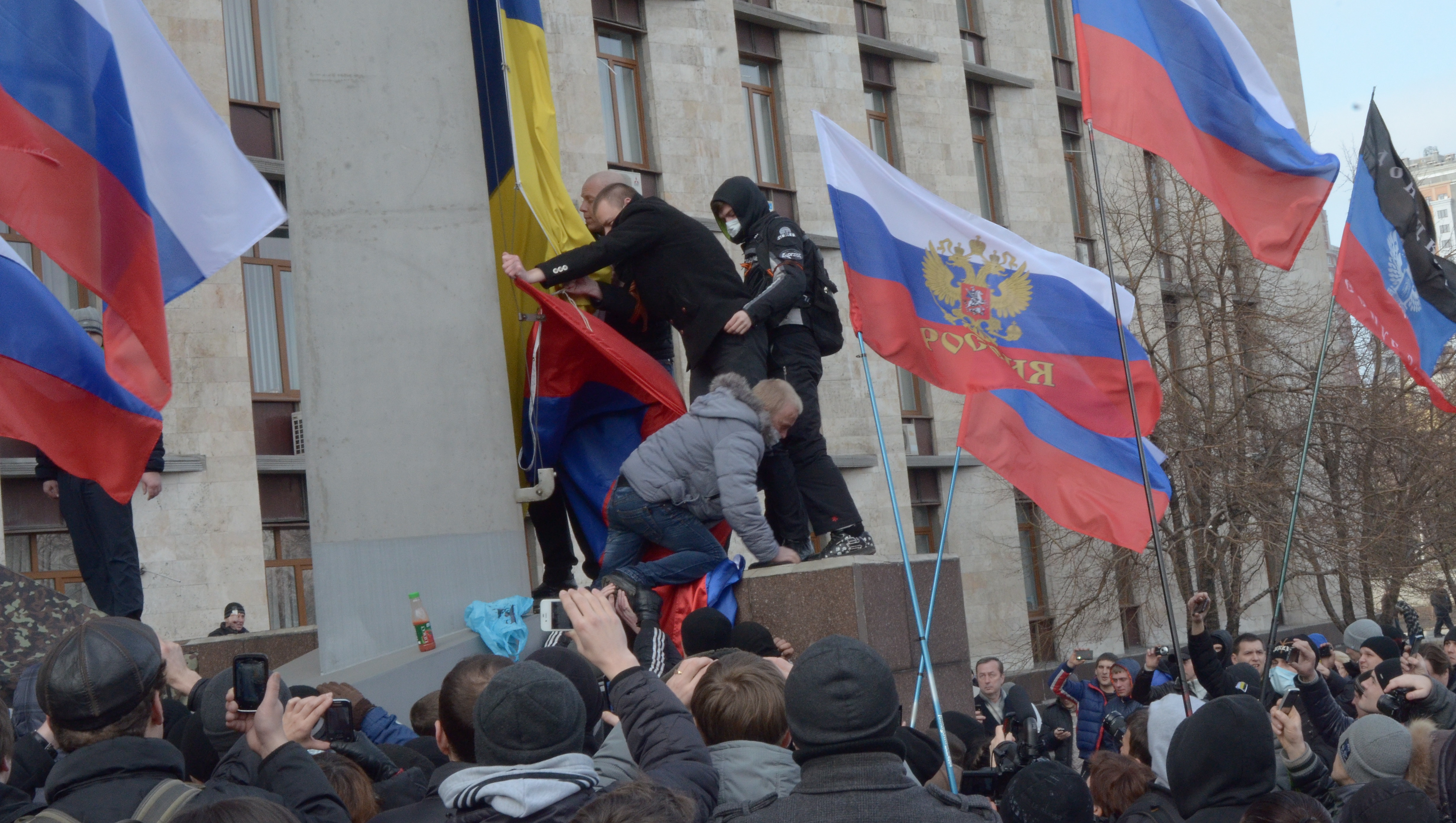On February 16, conflict in Ukraine escalated as pro-Russian rebels ignored the internationally brokered cease-fire determined after “16 hours of talks” between the presidents of Russia, Ukraine, Germany and France. Rebels came forward saying they would not observe the truce in Debaltseve, an eastern Ukranian town. Ukraine military spokesman Andriy Lyskenko reported that his “forces had been hit 112 times since the official start of the cease-fire after midnight Saturday,” demonstrating that the political agreement failed to deter the rebels from action.
This development calls into question the effectiveness of current measures to abate violence in the region and puts increasing pressure on the United States and its European allies to intervene. In light of recent conflict, Republican congressman Adam Smith called into question the effectiveness of the United States’ economic sanctions last week, saying, “[The sanctions] have not at all changed President Putin’s calculus.” Additionally, German Chancellor Angela Merkel, French President Francois Hollande and Ukranian President Petro Poreshenko responded with statements of concern for the “fragile” situation in Debaltseve.
What’s more, domestic pressure is mounting in the United States for President Obama to take action. On February 11, five days before the recent clashes, the top Republican and Democrat serving on the House Armed Services Committee called for “$1 billion in lethal defensive aid to Ukraine, as Congress increased pressure on President Barack Obama to help Ukraine defend itself against Russian-backed rebels.” Russian aggression is increasingly seen as an international problem that is inherently tied to United States’ interests and security. Smith commented, “It seems Russia has decided to go back to the Cold War.”
Despite the accelerating conflict and growing bipartisan support for action back home, the US should not send weapons to the Ukraine and should continue to work in accordance with Germany on developing alternative diplomatic strategies.
German chancellor Angela Merkel, who has held a consistent position against military action in Ukraine, has emerged as the leading European political figure through these recent tumultuous times. She has maintained that “Military action isn’t an option for us” since last March, persisting throughout last week’s peace talks and European Union summit. Her solid leadership and diplomacy have earned her international respect, with Time magazine naming her “the most powerful woman in the world” and the New York Times the “most powerful political figure,” while the New Yorker praised her “characteristically unsentimental view of Russia.” Jochen Bittner even questioned whether Merkel could be the “next leader of the free world.”
What makes Merkel so effective? Jon Henley of The Guardian points to her pragmatism, deliberateness and conservative decision-making. She “avoids risk at all costs,” and grabs the middle ground “by stealing [her] opponents’ most popular policies.” She is not flashy, but she is steady and reliable. What’s more, on this issue she wisely caters to the German people’s strong desire to not go to war, firmly taking a conservative, pro-diplomacy stance.
Obama could stand to learn from her leadership style, which has earned her such appraisal and respect over the past few years; however, due to the rising domestic pressures, he has a more challenging set of variables to consider. Not only are US politicians agitating for action, but also the American people seem to be increasingly inclined toward engaging in military conflict against Russia. In a recent Gallup poll, 18 percent of Americans named Russia as the United States’ “greatest enemy today,” while two years ago only 2 percent named Russia. At the same time, a Pew Research Center poll indicates that public support for arming Ukraine is increasing quickly.
Despite these pressures, with Merkel leading the way, it is in the United States’ best interests to follow suit. First, as Stephen Malt points to in Robert Jervis’s classic book Perception and Misperception in International Politics, Russian aggression in Ukraine fits more into a “spiral model” than a “deterrence model” of analysis. He argues that Putin seems to be motivated “primarily by fear or insecurity” rather than by aggression – “Russia is not an ambitious rising power like Nazi Germany…it is an aging, depopulating, and declining great power…” As a result, arming Ukraine will only exacerbate the conflict. He says, “Making threats and trying to deter or coerce [Russia] will only reinforce their fears and make them even more aggressive, in effect triggering an action-reaction spiral of growing hostility.” The answer to ending conflict and suffering then is diplomacy, not military action.
Political scientist Kimberly Marten provides a different angle in the argument against arming Ukraine. She points out that the “Ukrainian military is not a well-disciplined or cohesive force,” indicating that the US “would find itself with little control over how its weapons might be used on the ground.” She draws attention to the serious doubts about the Ukrainian military’s decision-making capability–pointing to numerous cases of Ukrainian forces firing on civilians – and the possibility of the military being “penetrated by a web of Russian intelligence agents,” as is posited by many Western analysts.
What’s more, a 2012 study by political scientist Matthew Moore examines the effectiveness of arms transfers on civil wars and concludes, “Giving major conventional weapons to recipients makes conflicts deadlier, and giving major conventional weapons to states is associated with longer conflicts. In either case, the transfer of major conventional weapons to those engaged in (…) a civil war does not make for an effective conflict management strategy. It is likely only to make conflicts worse.” When questioned about his study’s applicability to the current conflict in Ukraine, Moore affirmed that providing arms to Ukraine would only prolong the conflict.
Given the patent validity of these insights, President Obama should resist domestic pressures to take more aggressive military action or to supply Ukraine with weapons. The US would be better off collaborating with Merkel as she leads the charge for a diplomatic resolution with Russia and Ukraine.
